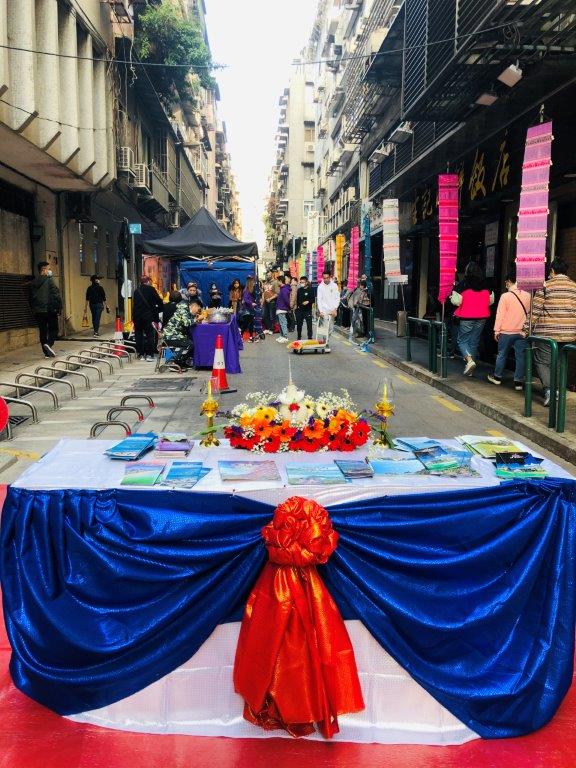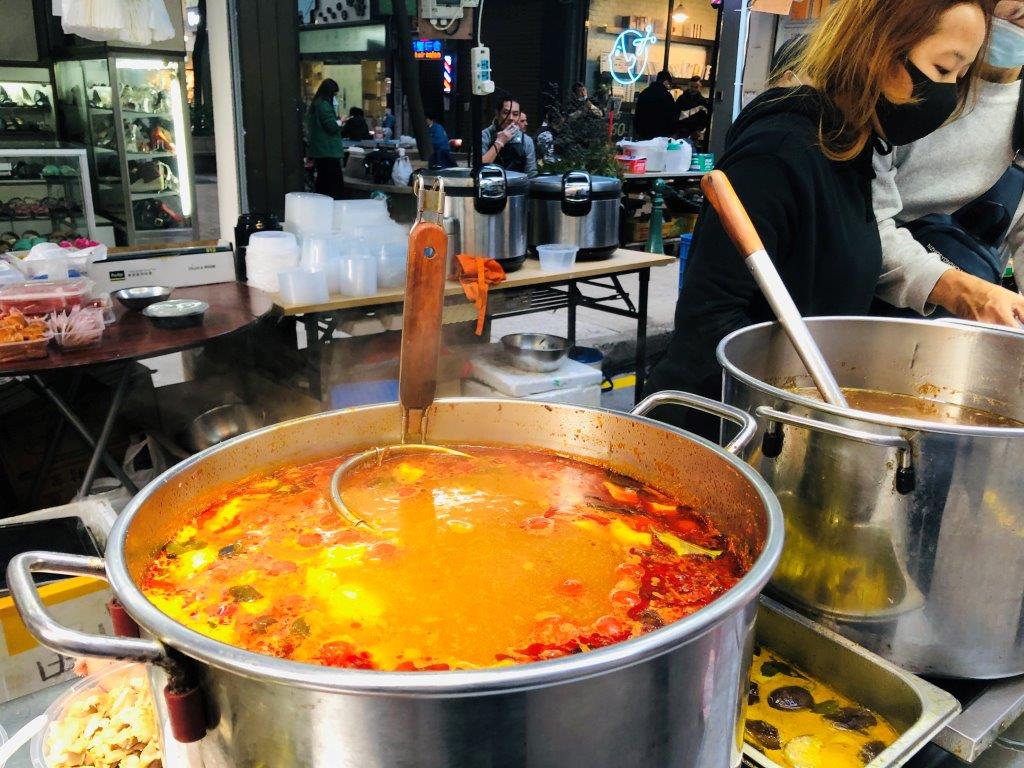Macau Thai Cultural Festival

All the past years lived lots of Thai Chinese migrate from Thailand rooting Thai food and traditional customs in Macau. Thus, many Thai restaurants have well mixed with elements of relatively primitive Macau Thai Cuisine, creating unique, localised Thai cuisine. Yet unknowingly injected within Macau’s daily life. Truly, Thai food has claimed as one of the most popular dishes today.
Today will briefly introduce various cultural footprints of Thai food; their regular celebrations in Macau each year, here for sharing.
The Birthday of the Thai Erawan Buddha
The Macau Erawan Buddha Birthday Celebration held 9th November each year at the Shrine, in front of the Macau Jockey Club. Due to the epidemic, lots of believers might not able to reach Thailand for worships. This year both sides have arranged real time broadcasts together. It is also the first time with use of technology performing live broadcast together within cross-domain shrine locations, which brings special significance in it. This year also have formed on-line with live group dancers rewarding The Gods together to pray for epidemic improvements; Wishing all country stays well and healthy, to live and work in peace with contentment, leading the economy in its good shape to prosperities; all worshipping activities have attracted many faithful followers.





Erawan Buddha position
There are two Erawan Buddhas in Macau; one located next to the parking lot in front of Macau Jockey Club Taipa; and the other located at the International Center, near the Macau Ferry Terminal. Both places have attracted many good male and female followers for worships.
According to information that acquired, the statue existed before the Macau handovers. Locals call it “The Four-faced Buddha of the Jockey Club”; the “Macau Jockey Club” existed as early as the predecessor of the Jockey Club in the eighties. By early 1980s, it has enshrined at its present look.
Erawan Buddha area and structure
The Four-faced Buddha of Macau primarily made of an open roof structure, covered with Buddha statues of gold on all sides. One missing thing was that the location is close to the racecourse, which relatively quite an isolated location. It takes seven to eight minutes walk to Taipa Rua da Cunha and other Souvenior shops. If wish to win money in casinos, its claimed as one of the most efficacious temple asking for sure wins.
The Erawan Buddha, formerly known as “Nianye Brahma King”, is one of the three-year gods of Brahmanism in India; Is the God who created the universe and the father of all living beings. He has boundless mana in the heavens, and he controls the glory of the world and has noble mana.
The Erawan Buddha is one of the most popular Buddha praying statues in Thailand. The Buddha has four Buddha faces which represent love, career, well-being and wealth; all in charge of all affairs of the world.

Thailand Cultural Food Festival
In addition, the “Thailand Food Cultural Festival” hold on the first weekend of December each year (Rua de Abreau Nunes, close to Avenida do Conselheiro Ferreira). Many Thai shops all setup in this street, thus now called “The Little Thailand”. The organizer arranged a series of special booths from many Thai restaurants and Thai food stalls in Macao; as well as many small and medium enterprises and groups.








In addition, there are also Thai-lifestyles, cultural and entertainment performances; Including Thai-style ladyboy singing and dancing, rock songs, and Muay Thai performances. Both locals and tourists can experience the unique customs of Southeast Asia and cultural exchanges in Thailand. Due to epidemic again, this year had minimised some of the yearly core activities, but street food does attract lots of people arriving for traditional food tastings, in fact never lost its original authentic flavors.










The community also continued organising Blessed Rice distribtuions, conducted for five consecutive years upcoming; the said activity were all welcomed by most public. In the past, the thai association itself prepared 2,500 packs of blessed rice every year for locals and the elderly around.










